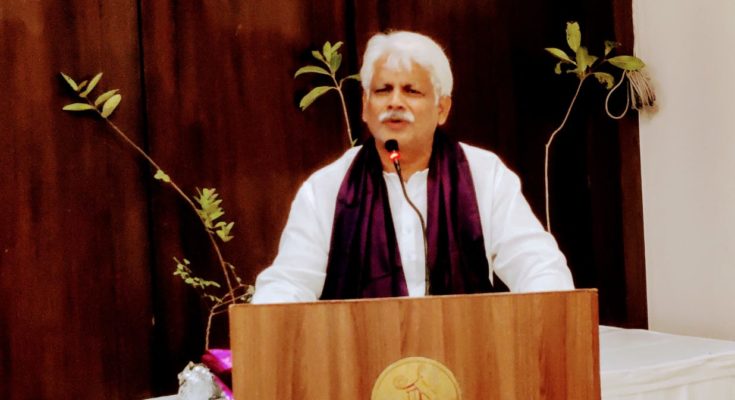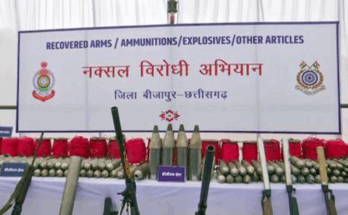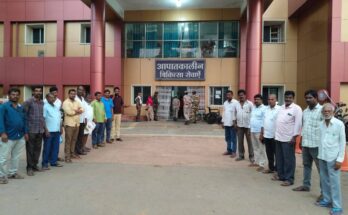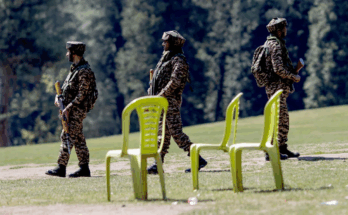Continuing their fight for adoption of evidence-based nutrition standards and consumer friendly warning labels on all processed and packaged food and beverages, People’s Vigilance Committee on Human Rights (PVCHR) along with the Foundation of Sustainable Development India and Savitri Bai Phule Mahila Panchayat organised a joint-consultation in Varanasi, which noted that there is enough research to link the exponential rise in childhood obesity, early onset of cardio vascular disease, diabetes and the overall burden of non-communicable diseases spiralling out of control with excessive consumption of ultra-processed food and beverage industry.
At the consultation, faith leaders, child rights and parents’ groups made a joint appeal to fast-track India’s adoption of these nutrition labels & standards, calling it an utmost priority. Experts said that India should lead by example and join the growing number of countries across the world that have made food labelling mandatory and have set WHO mandated thresholds on harmful ingredients. Evidence coming in from countries like Chile and Brazil have clearly indicated that a simple and mandatory warning label style FOPL such as the ‘high-in salt/sugar or saturated fats’ warning labels make a quick impact on betterment of public health, reducing consumption of unhealthy food, changing consumer preference and encouraging industries to reformulate.
Need for a strong FoPL regime as a policy tool to address malnutrition in post-COVID society
Speaking at the launch of PIPAL (People’s Initiative for Participatory Action on Food Labeling) – a national grassroots initiative to accelerate the adoption of strong food labels, Prof. Vishwambhar Nath Mishra, Mahant of Varanasi’s Sankat Mochan Temple and Head of the Department, Electronic Engineering, IIT-BHU, emphasised that there is an urgent need to protect children from becoming obese and being vulnerable to deadly diseases as they grow up. “Are children or their families in control of what they eat? Knowing what we eat, what is in the food that we give our children is an inalienable right that we must protect. More and more people of our country are consuming junk or processed food and it is a well-established that most of these foods contain harmful ingredients or salt and sugar several times higher than the recommended threshold. An easy-to-read FOP label with clearly set limits that warns children and parents should be a priority.”
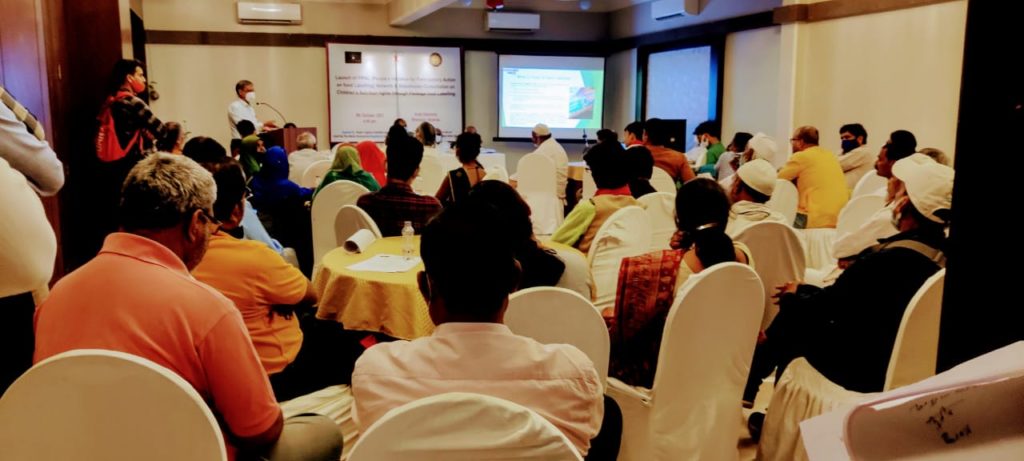
Calling this an important initiative, Mr. Md. Arif, noted Islamic thinker said, “As community leaders, we demand a healthier food system for the people of all socio-economic levels. They should be able to choose healthier options and an interpretive label on the front of a food packet can guide consumers, parents and children. We are glad to join hands with PIPAL to make this happen for India.”
According to Dr. Sangeeta Kansal, Head of Community Medicine at Institute of Medical Science, BHU, “With more than 14 million obese or overweight, Indian children are facing an unhealthy future and have a high risk of NCDs in their adulthood. We are what eat and therefore we must look very closely at the food that is being marketed to us. As doctors, we are gravely concerned with the poor dietary pattern that has become the order of the day. Regulatory steps such as nutrition thresholds that make it mandatory for the industry to reformulate and make their food products healthier, at par with global and scientific standards, will go a long way in preventing an obesity or diabetes epidemic.”
India is one of the global leaders in the food and beverage industry with a sales volume of 34 million tons. As per forecasts of the Euromonitor data, India was set to emerge as the third largest market for packaged food in the world by 2020, after China and the United States. Studies have found that in India, across urban and rural households, 53% children consumed salted packaged food such as chips and instant noodles, 56% children consumed sweet packaged food such as chocolates and ice creams and 49% children consumed sugar-sweetened packaged beverages at an average of over twice a week. A simple, interpretive and mandatory front-of-pack label, considered a critical component of a suite of measures to fight NCDs, could be India’s winning strategy to ensure a healthier tomorrow for its children.
According to Mr. Ashim Sanyal, COO, Consumer VOICE said, “This consumption pattern is of further concern since most processed and packaged foods contain salt, sugar and fat in quantity that is several times higher than the thresholds proposed by the Food Safety and Standards Authority of India (FSSAI) in its 2018 draft labelling and display regulations or by the WHO SEARO NPM model. The draft regulations published by FSSAI in 2019 was an important step towards reducing the health harm of these products. As a result of push back from the industry, a decision has been pending for years now.”
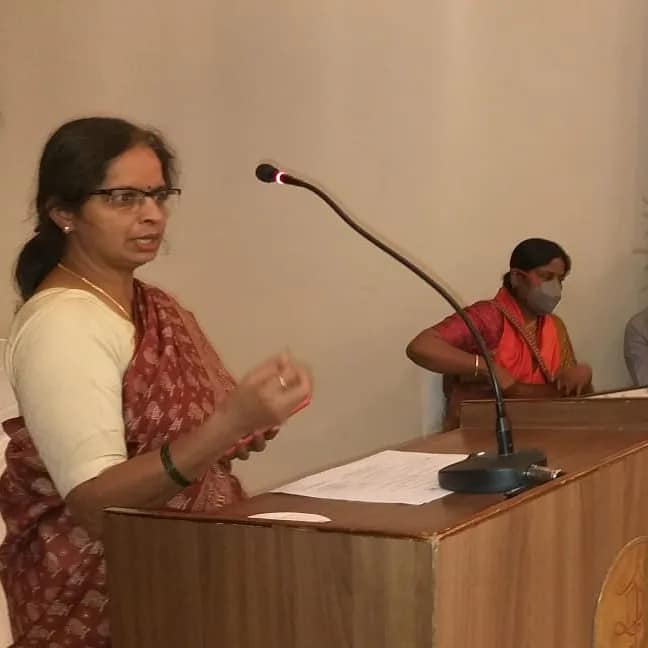
Given the gravity of health implications, human right activist and CEO of PVCHR (People’s Vigilance Committee on Human Rights) Dr. Lenin Raghuvanshi asserted that PIPAL was an effort to remind the policy makers, nutrition leaders and industry that “Children have a right to health and nutrition, as per Article 21 of the Constitution of India. Good nutrition is a fundamental right as per the UN Convention of Child Rights. It is time to make sure that children are given their right, their well-being taken seriously. PIPAL notes with concern that even during the pandemic, food companies continued to grow their business and spent millions of dollars on advertising ultra-processed food.”
In its efforts to accelerate adoption of FOPL and lead consumers, parents to a healthier choice, PIPAL will create nationwide awareness among and table voices of various consumer groups, particularly parents and those working with and for children. It will also serve as a learning platform for civil society groups, health & civil rights advocates, consumer groups who are interested in best practices and learnings on food labelling and nutrition thresholds.
For more information, please contact:
Prashant Subramanian: +919899125503; prashant@kaizzencomm.com

